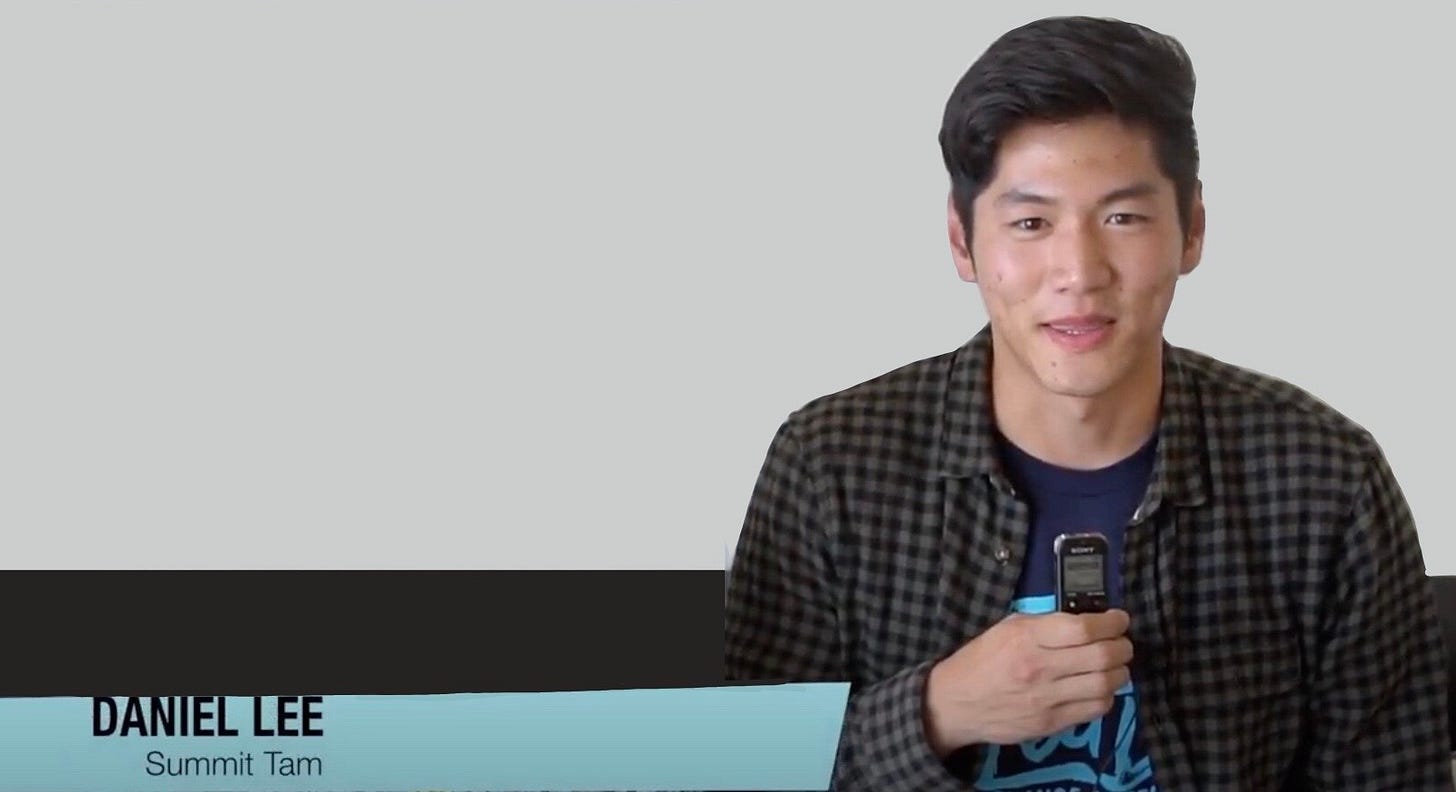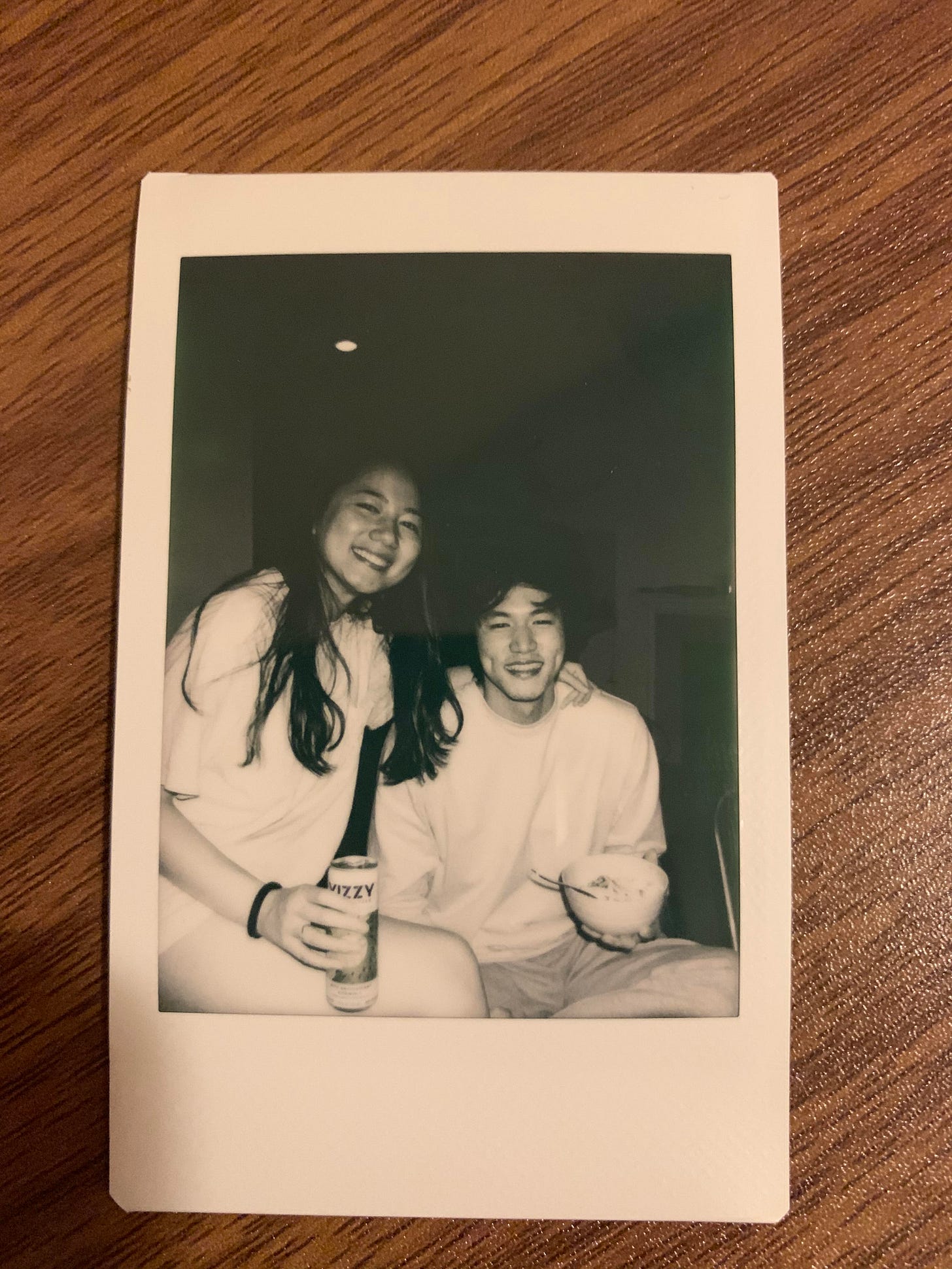"Children are a wonderful gift. They have an extraordinary capacity to see into the heart of things and to expose sham and humbug for what they are." - Desmond Tutu

Above: this is me during my first week of summer training for Teach for America
This past week, I passed into Alumnihood for Teach for America. Years later, I'll look back at the final quarter of my commitment to teaching as one of the most important lived experiences of my lifetime. The last three months have been shaped by a global pandemic that eliminated the feasibility of teaching in a physical school, the murder of George Floyd and other Black Americans that sparked righteous outrage towards the status of racial injustice and police brutality in the United States, and a looming financial recession with unemployment rates measuring higher than the peak of the 08-09 recession.
Today I want to take the opportunity to share a snippet of my Teach for America experience.
Across college campuses, Teach for America is known as the relentless guerrilla marketing machine with on-campus recruiters setting up countless information sessions and cold-email coffee chats with prospective recruits. Personally, I have always been interested in teaching at some point in my life. Losing my father at an early age, I struggled heavily in my middle school and high school years questioning my confidence and walking with a chip on my shoulder. The moments I really believed in myself were driven by incredible educators (shout out Mrs. McInerney) and mentors.
So when I received the fateful cold-email from the USC TFA recruiter to set up a time to chat, I happily accepted the request and was excited to learn more about the program. Although I studied Business at USC and was on track to enter the corporate world, I ended up taking a turn my senior year to commit to the classroom after graduation.
In the Spring of my senior year, I interviewed with schools in the Bay Area that partnered with Teach for America. At that point, I had only started to read about the U.S. education system and was relying on a school to hire me based on my academic merits and activities on campus. My first insight into the teacher shortage was when I began the interviewing process with charter schools in my placement region. In one of my interviews, I wasn't asked a single question and instead was offered a teaching position immediately after introducing myself.
I became fairly concerned that 1. the organization must really need teachers if they're trusting this senior in college with no experience to enter the classroom come August and 2. how involved would my administration be in my experience.
Luckily, at the school I ended up committing to, I was challenged by the rigor of the interview process and really enjoyed conversing with a fellow math teacher that I ended up working with.
Knowing how polarized the experience of landing a teaching role was for me, I started to broadly question the criticism that TFA teachers overtake teaching roles that traditional candidates from Masters of Education Programs apply for. My limited perspective made me question whether I would ever assume a teaching position over a candidate with a Master's degree. A traditional candidate comes in with student teaching experience, exposure to pedagogical theories, and has experience building lesson plans. If I were an administrator, it would be a no-brainer to choose the traditional candidate over me.
The other area I considered was financial. To hire a Teach for America candidate, a partner school has to pay Teach for America $1,000 for providing the recruit. Accounting for this additional hiring fee, a first-year master's teaching candidate would only amount to $500 more per year given their starting salary. Even if school budgets are tight, I don't think $500 would justify hiring a significantly less qualified candidate (me) compared to a master's candidate. And not to diminish my work over the last two years, but the other first-year teacher at my school who did obtain their master's absolutely killed it and was incredibly inspiring in her work (shout-out Ms. Mo).
All that to say, I'm grateful to have filled a role that would have otherwise been empty or filled with a potentially less-qualified candidate. With my regular cadence of journaling over the intense past two years, I could share stories upon stories about what I've seen in the classroom: the good, the bad, and the ugly. However, I'll leave it with this final letter one of my mentees wrote me after I informed them I was leaving the classroom:
"To be honest I've tried writing this letter a couple of times since you told us that you were leaving this year, but I felt none of my words can sum up how thankful I am to have had you for a mentor these past two years. So I'll start at the beginning.
As you know, starting at Summit wasn't easy for me. I was a very shy and anxious person. I struggled with talking to people, asking for help, and I felt as though it didn't matter how many times I tried to improve because I would always end up in the same place. However, your words of encouragement have helped me a great deal, more than you will ever know. You pushed me to be better not only academically but as a person as well. This may sound weird but I would genuinely get excited with every check-in or parent meeting we would have, whether I showed it or not, because I enjoyed your company, and seeing you believe in me meant so much.
During my sophomore year, I improved a lot. My grades got higher, I would speak up and participate more, and my overall character and outlook on the next couple of years improved tremendously. I think you don't quite realize that the reason I've grown so much is thanks to you. Even during virtual school you continued to show up and encourage everyone to think positively and continue to work hard. To make sure we felt like we were all still together you would try different group activities. This year wasn't easy for anyone, but you like all my classmates pushed through and tried to be the best version of yourself. Thank you for helping us during this difficult time.
You've truly become a great role model for me. You are smart, persistent, hard-working, and kind, traits that I aspire to be one day. The way you would show up to school ready to teach us, even when we didn't want to learn, was admirable. You didn't give up on us, even when we acted stubborn or didn't listen, and for that alone you deserve a million thank yous.
It saddens me that I can't say goodbye to you in person and that I most likely won't see you again until I graduate. Nonetheless, I wish you and your family the best!"
It is with extreme guilt and sadness that I close my time with TFA. But if I didn’t celebrate the work I've committed to with students, I would be doing a disservice to the growth I have seen in them. There’s so much unfinished work left to be done in the classroom, and I am excited to take this time to step back and figure out a way I can continue my impact outside of it.

Above: celebrating TFA Alumnihood with a comforting bowl of pasta (the hair really grew).
This Week’s Three
1. My mentee broke down the 1950-60s Civil Rights Movement
If you need a refresher, or if you need to learn who the prominent figures in the 1950-60s Civil Rights Movement and how they peacefully invoked societal change, one of my mentees wrote this brilliant essay capturing their work as an exploration of her own identity for her History Capstone Essay.
I have asked my mentee for permission to share this essay.
Please Click Here to read how individuals active in the CRM in the 1950s and 60s influenced the social norms and systems of belief in American culture.
2. A quote on my mind
“But Mr. Kafuku, can any of us ever perfectly understand another person? However much we may love them?” - Haruki Murakami, Men Without Women
3. A poem from this week
Why. - Thomas Pedroza
We are here
because
the world we’ve inherited
is not our fault
but it is our
responsibility
and
it will be
our legacy.
Final Thoughts
Happy Sunday everyone! Given how overwhelming this time is for everyone right now, I would love to hear how you’re working to sustain your mental health and energy.
Sweet Potato,
Daniel



